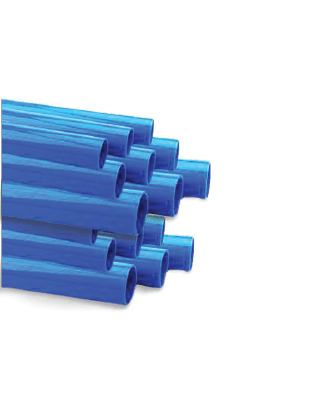Carrier Pipe Dealer & Supplier
Best Butt Weld Fittings Manufacturer in India since 1971.

Table of Contents
Teshi Group : Leading Manufacturer, Stockist, Supplier, and Exporter of Carrier Pipe in India.
Teshi Group is a leading manufacturer, stockist, supplier, and exporter of carrier pipes in India, delivering top-notch solutions for various industries with a commitment to quality and performance. Known for their durability, precision, and reliability, Teshi Group’s carrier pipes are engineered to meet the demanding requirements of applications in sectors such as oil & gas, petrochemical, water transportation, and infrastructure. These pipes are manufactured using high-grade materials and advanced technologies, ensuring superior performance even in challenging conditions. Teshi Group offers a wide range of carrier pipes, available in various sizes, materials, and specifications, designed to cater to the unique needs of each project. With adherence to stringent industry standards and a focus on innovation, Teshi Group ensures that every carrier pipe provides exceptional strength, corrosion resistance, and long-lasting functionality. Backed by a robust supply chain, Teshi Group serves both domestic and international markets, ensuring timely delivery and customer satisfaction. Whether for industrial pipelines, utility conduits, or specialized applications, Teshi Group is the trusted partner for reliable and high-quality carrier pipe solutions.
About Carrier Pipe :-
A Carrier Pipe is a primary conduit used to transport various substances, such as water, gas, oil, or other fluids, in industrial, commercial, and municipal applications. Designed for durability and reliability, it is typically constructed from materials such as steel, stainless steel, PVC, or high-density polyethylene (HDPE), chosen based on the type of substance being conveyed and the operating conditions. The carrier pipe is often encased within a protective outer casing, especially in underground or insulated installations, to shield it from external forces, corrosion, or thermal fluctuations, ensuring longevity and performance. This dual-pipe system, often referred to as a “pipe-in-pipe” configuration, enhances safety and environmental protection, particularly in critical applications such as transporting hazardous or temperature-sensitive materials. Carrier pipes are engineered to withstand high pressure, temperature extremes, and mechanical stresses, making them an integral part of infrastructure in sectors like energy, utilities, and water management. Their versatility, coupled with stringent compliance with industry standards, ensures that carrier pipes provide efficient and secure transport solutions for a wide range of applications.
Teshi Group is an ISO certified Carrier Pipe manufacturer & distributor in India.
Teshi Group Is A Leading Suppliers of Carrier Pipe
We supply Carrier Pipe to Agra, Ahmedabad, Ajmer, Aligarh, Allahabad, Ambattur, Amravati, Amritsar, Asansol, Aurangabad, Bangalore, Bareilly, Belgaum, Bhavnagar, Bhilai Nagar, Bhiwandi, Bhopal, Bhubaneswar, Bikaner, Chandigarh, Chennai, Coimbatore, Cuttack, Dehradun, Delhi, Dhanbad, Durgapur, Faridabad, Firozabad, Gaya, Ghaziabad, Gorakhpur, Gulbarga, Guntur, Gurgaon, Guwahati, Gwalior, Haora, Hubli and Dharwad, Hyderabad, Indore, Jabalpur, Jaipur, Jalandhar, Jalgaon, Jammu, Jamnagar, Jamshedpur, Jhansi, Jodhpur, Kalyan & Dombivali, Kanpur, Karnataka, Kochi, Kolapur, Kolkata, Kota, Loni, Lucknow, Ludhiana, Madurai, Maheshtala, Malegoan, Mangalore, Meerut, Mira, Bhayander, Moradabad, Mumbai, Nagpur,Nanded Waghala, Nashik, Navi Mumbai, Nellore, Noida, Patna, Pimpri & Chinchwad, Pune, Raipur, Rajkot, Ranchi, Saharanpur, Salem, Sangli Miraj Kupwad, Siliguri, Solapur, Srinagar, Surat, Thane, Thiruvananthapuram, Tiruchirappalli, Tirunelveli, Udaipur, Ujjain, Ulhasnagar, Vadodara, Varanasi, Vasai Virar, Vijayawada, Visakhapatnam, Warangal.
Carrier Pipe Exporter To All Major Cities In The World
We export Carrier Pipe to Seoul, Hanoi, Los Angeles, Rio de, Houston, York, Dammam, Al-Khobar, Bogota, Al-Jubail, Chiyoda, Abu Dhabi, Kuwait Santiago, Perth, Busan, London, Jakarta, Surat, Courbevoie, Dallas, Calgary, Mexico Muscat, Aberdeen, City, Edmonton, Riyadh, Caracas, Ahvaz, Brisbane, Moscow, Milan, Manama, Ulsan, Jaya, Granada, Vung Petaling, Melbourne, Montreal, Port-of-Spain, La Victoria, Istanbul, Janeiro, Karachi, New Singapore, Madrid, Lagos, Atyrau, Sydney, Kuala Dubai, City, Bangkok, Toronto, Gimhae-si, Lumpur, Jeddah, Pimpri-Chinchwad, Tehran, Doha, Ho-Chi-Minh-City, Algiers, Tau, Colombo, Ernakulam, Geoje-si, Cairo, Sharjah, Lahore.
Teshi exports Carrier Pipe in more than 50 countries. We have shipments going out monthly to different countries for our newly acquired customers. Our ready stock of Flanges helps us ship the Flange and meet the requirement and demands of our customers as fast as possible.
We export Carrier Pipe to United States (USA), Canada, Germany, Japan, France, Middle-East, Bangladesh, Nepal etc.
Product
Export
Frequently Asked Questions
Most frequent questions and answers
What is a carrier pipe?
A carrier pipe is the central pipe used to transport various materials, such as liquids, gases, or solids, in applications ranging from industrial processing to municipal infrastructure. It is typically encased within a larger pipe, known as the casing or conduit pipe, to provide additional protection and insulation.
What materials are used to make carrier pipes?
Carrier pipes are manufactured using a variety of materials, depending on their application and the type of material they are transporting. Common materials include carbon steel, stainless steel, PVC, HDPE, and ductile iron. The choice of material depends on factors such as temperature, pressure, and the chemical nature of the transported substance.
What are the key applications of carrier pipes?
Carrier pipes are widely used in industries such as oil and gas, water supply, wastewater management, chemical processing, and district heating. They are integral to systems requiring the safe and efficient transfer of fluids or gases over long distances or through challenging environments.
Why are carrier pipes often enclosed within casing pipes?
Enclosing carrier pipes within casing pipes offers enhanced protection against environmental factors such as soil pressure, water ingress, and corrosive substances. The casing also provides mechanical support and allows the carrier pipe to expand or contract freely, which is especially important in applications involving extreme temperatures.
What are the advantages of using carrier pipes?
Carrier pipes provide a secure, durable, and efficient means of transporting materials. Their versatility in materials and designs allows them to handle various temperatures, pressures, and chemical compositions. When paired with casing pipes, they offer additional safety and longevity, reducing maintenance and operational costs over time.
How are carrier pipes installed in underground or trenchless applications?
For underground installations, carrier pipes can be placed within casing pipes through techniques such as slip lining or pipe jacking. Trenchless methods, such as horizontal directional drilling (HDD), are often used to minimize surface disruption. These methods ensure the carrier pipe is securely positioned while protecting it from external forces.
What considerations are important when selecting a carrier pipe?
Key factors to consider include the type of material to be transported, operating pressure and temperature, chemical compatibility, and environmental conditions. Proper sizing and compliance with industry standards, such as ASME, ASTM, or API, ensure optimal performance and safety.
How are carrier pipes protected from corrosion?
Carrier pipes are often coated with anti-corrosion materials such as epoxy, polyethylene, or polyurethane. For additional protection, cathodic protection systems may be used to prevent electrochemical reactions that cause rusting. Regular maintenance and inspections are also crucial to identifying and mitigating corrosion risks.
Can carrier pipes handle high-pressure systems?
Yes, carrier pipes are designed to handle a range of pressure levels, including high-pressure applications. The material, thickness, and joint design of the pipe are engineered to withstand the specific pressure requirements of the system, ensuring safe and reliable operation.
What are pre-insulated carrier pipes?
Pre-insulated carrier pipes are specially designed systems where the carrier pipe is surrounded by insulation material and an outer casing. These are commonly used in district heating and cooling systems to minimize heat loss or gain, ensuring energy efficiency during transportation.
How are carrier pipes maintained?
Regular maintenance includes visual inspections, pressure testing, and monitoring for signs of leaks, corrosion, or mechanical damage. Advanced techniques such as ultrasonic testing or pipeline integrity management systems can also be employed to assess the condition of the carrier pipe without requiring excavation.
Are carrier pipes environmentally friendly?
Carrier pipes are environmentally friendly when designed and maintained properly. Using high-quality materials and advanced coatings minimizes the risk of leaks and contamination. Additionally, pre-insulated carrier pipes contribute to energy efficiency, reducing the overall environmental impact.
What standards govern the manufacturing of carrier pipes?
Carrier pipes must comply with industry-specific standards to ensure quality and safety. Common standards include ASME B31.3 (Process Piping), API 5L (Pipeline Transportation Systems), and ASTM specifications for material and performance requirements. Adherence to these standards guarantees reliability and compatibility with other system components.
What types of joints are used for carrier pipes?
Carrier pipes can be connected using various joint types depending on the material and application. Common options include welded joints for metal pipes, mechanical couplings, flanged connections, and push-fit joints for PVC or HDPE pipes. The selection of joint type ensures leak-proof connections and accommodates thermal expansion or contraction.
How is thermal expansion managed in carrier pipes?
Thermal expansion in carrier pipes is managed using expansion joints, loops, or bellows that allow for controlled movement without stressing the pipe. Additionally, casing pipes provide an extra layer of space for the carrier pipe to expand freely, preventing damage to the structure. Pre-insulated pipes also minimize thermal variations.
Can carrier pipes be used in chemical transport systems?
Yes, carrier pipes are often used for chemical transport. Materials like stainless steel, lined pipes, or specially coated pipes are selected to ensure chemical compatibility and prevent corrosion or degradation caused by aggressive substances. Proper design also includes pressure and temperature considerations.
What is the role of spacers in carrier pipe systems?
Spacers are used to center the carrier pipe within a casing pipe, ensuring even spacing and preventing contact between the two. They also reduce friction during installation and help maintain the structural integrity of the pipe system. Spacers are typically made of non-corrosive materials like plastic or stainless steel.
How are carrier pipes tested for leaks?
Leak testing is conducted through methods such as hydrostatic testing, where the pipe is filled with water and pressurized to detect leaks. Pneumatic testing using air or gas is another option, though it requires stricter safety precautions. For operational systems, leak detection sensors and monitoring technologies are employed.
What factors influence the design of carrier pipe systems?
Design considerations include the transported material’s properties (e.g., temperature, pressure, and viscosity), environmental conditions (e.g., soil type, corrosiveness, and external loads), and system requirements like flow rate and durability. Standards and regulatory compliance also play a critical role in the design process.
How does insulation benefit carrier pipe systems?
Insulation minimizes heat loss or gain, maintaining the temperature of the transported material and enhancing energy efficiency. It also protects the pipe from external temperature variations, reducing thermal stress. Insulated carrier pipes are essential in applications like district heating or cryogenic transport.

Teshi is a one stop solution for all engineering needs. With an experience of over 50 years we tend to provide best in class service, with unmatchable quality.
Reach Us
- info@teshigroup.com
- +91 - 99039 95272
- +91 - 98040 02184



